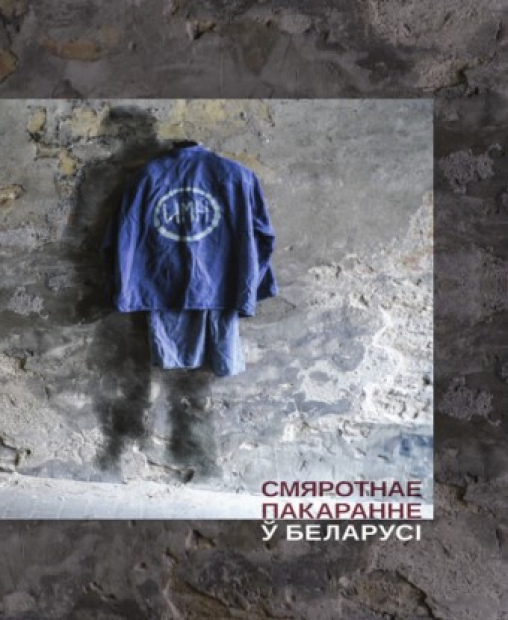October 10 is the World Day Against the Death Penalty. In the 21st century, this once widespread form of punishment is now used in only a few dozen countries around the world. In Europe, there is only one such country — Belarus. It is not something to be proud of. Therefore, human rights activists continue their campaign against the death penalty in Belarus, which they started back in 2009.
According to the Constitution of Belarus, the state guarantees the right to life. However, in exceptional cases, this same state takes life away. Human rights defenders highlight several reasons why the death penalty must be abolished:
- Judicial errors and the impossibility of correcting them.
- Executioners — professional killers who take lives on behalf of the state.
- The killing of political opponents, mass repression, and the danger of deliberate murder at the hands of the law.
- Lack of transparency in procedures, and the suffering of relatives.
- Ineffectiveness in preventing planned crimes.
- The death penalty does not address the root causes of crimes.
- The death penalty does not serve justice.
- The death penalty fosters cruelty in society.
- Corruption and an imperfect justice system, leading to the risk of unfair, biased trials.
In many countries, perhaps the most important argument against such punishment is the impossibility of correcting a judicial error when an innocent person is sentenced to death. This happened in the Soviet Union during the Great Terror. Likely, we witnessed a similar killing of innocents more recently, in 2011, when, after an ultra-quick trial, Dmitry Konovalov and Vladislav Kovalyov were sentenced to death, allegedly for the Minsk metro bombing.
Under the regime currently ruling in Belarus, the state can intentionally and purposefully sentence an innocent person to death. Judges in our country are appointed by Lukashenko and have no independence, creating the conditions for abuse of power.
Today, Lukashenko's courts are issuing unjust sentences to Belarusians who desire freedom and democracy. For now, these are "only" prison terms. However, political prisoners are held in conditions equated to torture. As a result, at least six people convicted for political reasons have died in custody in recent years. These are Vitaly Ashurak, Mikhail Klimovich, Ales Pushkin, Vadim Khrasko, Igor Lednik, and Alexander Kulinich.
At least seven other political prisoners remain in incommunicado detention. These include Viktor Babariko, Nikolai Statkevich, Maxim Znak, Maria Kolesnikova, Igor Losik, Sergei Tikhanovsky, and Vladimir Kniga. They have no contact with the outside world, and their relatives are unaware of their whereabouts or condition.
Recently, Belarus has been amending its Criminal Code, increasing the number of crimes punishable by death. Since 2022, the state can execute not only for committing a crime but even for attempting one. And as of March 25, 2023, the death penalty is now applicable to officials and military personnel for treason. The regime is giving more power to its enforcers in case of any new threat to its existence and will stop at nothing, including killing people both in freedom and in prisons.
In 2015, a book was published titled "The Death Penalty in Belarus". It discusses the repression of the regime's opponents. According to the compilers, Belarusian society has gradually forgotten about Kurapaty and the terrifying period in our history when people were sentenced to death for holding different views. We must remember: in a country where the death penalty exists, this mechanism can at any time be used against opponents of the ruling regime.


 Continue
Continue
